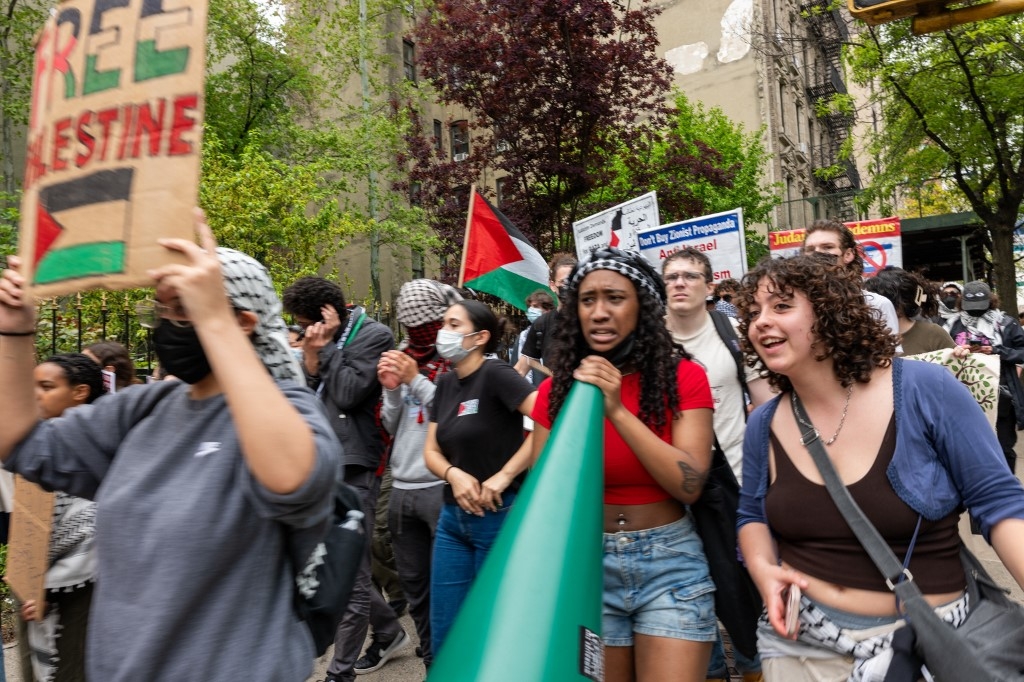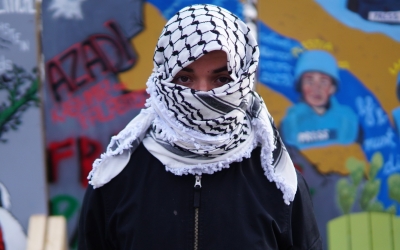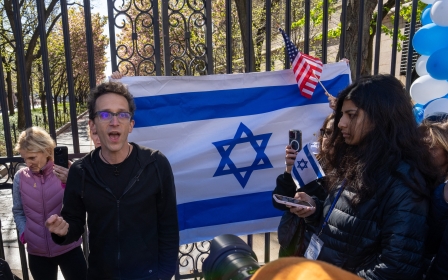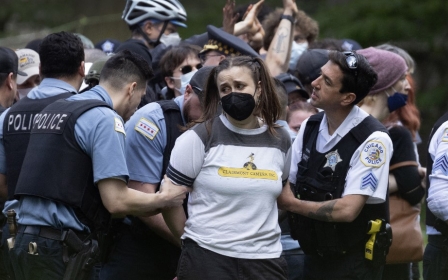Dozens of attorneys general urge Columbia University to resist pro-Palestinian protests

Over two dozen US state attorneys general have signed a letter addressed to Columbia University’s interim president, Katrina Armstrong, asking the university to stand firm against calls for divestment from Israel and to address antisemitism on campus.
The 25 attorneys general expressed “grave concerns” in a letter dated 23 October about what they characterised as antisemitic incidents on Columbia’s campus, referring to pro-Palestinian protest movements and encampments on US campuses.
The Palestinian-led Boycott, Divest and Sanctions (BDS) movement has guided a lot of Pro-Palestinian movements across US campuses since the onset of Israel's war on Gaza, demanding universities end their investments in companies that facilitate or profit from Israel’s occupation of Palestine and the war.
On the question of why these judges from different states were writing in regards to the affairs of a private New York City university, the letter read: "This issue is a matter of special concern to the states because students from across the country attend Columbia University."
The letter goes on to commend Columbia University’s earlier decision not to divest from Israel and to continue to "hold the line", urging the administration “to continue to maintain that position despite blatantly antisemitic pressure from some pro-Palestine student groups”.
New MEE newsletter: Jerusalem Dispatch
Sign up to get the latest insights and analysis on Israel-Palestine, alongside Turkey Unpacked and other MEE newsletters
The letter briefly mentions the implications for free speech but concludes that "while balancing student speech rights against credible threats to people and property can be a delicate task, declining to divest should be an easy call".
The letter's authors recall an earlier letter sent by 24 state attorneys general to Brown University, which warned about the “legal consequences of yielding to divestment calls rooted in antisemitism”.
Following this, the Brown University board voted to reject a student proposal calling for divestment from Israel.
Among the signatories of the letter to Armstrong are attorneys general from several states which have passed anti-BDS state legislation, including Florida, Texas, and Arkansas, among several others.
Twenty-eight states currently prohibit agencies from working with companies that boycott Israel, while six others passed similar bills in the form of executive orders.
In 2016, former New York Governor Andrew Cuomo issued an anti-BDS executive order, saying, “The State of New York unequivocally rejects the BDS campaign and stands firmly with Israel”.
Nature of the protests
Columbia University’s handling of the sustained protests last year attracted the attention of both federal and New York state authorities.
New York attorney general Letitia James condemned the rise of antisemitic incidents on college campuses, including Columbia, calling for a firm response.
“The events that have occurred at Columbia University have been deeply concerning and painful for many,” James said. “When peaceful protest devolves into hate and antisemitic violence, the line is crossed and will not be tolerated.”
President Biden also condemned the protests by saying, “Harassment and calls for violence against Jews has absolutely no place on college campuses.”
In May, 13 Conservative federal judges said “they would not hire law students or undergraduates from Columbia University in response to its handling of pro-Palestinian demonstrations”. They also called the university an “incubator of bigotry” in a letter addressed to former president Nemat "Minouche" Shafik.
But this narrow characterisation of the protests is not shared by everyone. Many argue that the demands stem not from antisemitism, but from moral convictions and a defence of free speech.
Berkeley University professor Robert Reich, who spent weeks engaging with students and faculty during campus protests, observed that, unlike many other movements that involve a mix of people and various objectives, “this one is centered on one thing: moral outrage at the slaughter of tens of thousands of innocent people – most of them women and children – in Gaza”.
Although US lawmakers and major news outlets have hurled accusations of antisemitism to criticise pro-Palestinian protesters, interviews conducted by MEE with Jewish students across campuses present a different perspective.
The Jewish students argued that accusations of antisemitism were insincere and intended to divert attention from the protesters' demands. MEE also discovered that at several protest encampments, anti-Zionist Jewish students significantly outnumbered Palestinian or Arab demonstrators.
In a letter published in May, several hundred Jewish students stated that "the narrative that the Gaza solidarity encampments are inherently antisemitic is part of a decades-long effort to blur the lines between criticism of Israel and antisemitism."
Columbia protests
Last year, Columbia University, an Ivy League school, witnessed some of the largest and most intense campus protests in the US, as students demonstrated against what they termed a "genocide" in Gaza carried out by Israel.
Columbia's previous academic year ended with the New York Police Department raiding a pro-Palestinian encampment that had taken over the campus quad.
Following the raid, student protesters briefly occupied an academic building before being removed by police, resulting in over 100 arrests.
The main graduation ceremony was cancelled, and the student body left for summer break amid an atmosphere of tension.
The university is still dealing with the aftermath of the protests which took place earlier this year.
Former president Shafik announced her resignation a week after three Columbia University deans were permanently removed from their positions due to "very troubling" text messages containing "antisemitic tropes", according to the university president.
Recently, Columbia temporarily banned pro-Israel professor Shai Davidai from campus for "repeatedly harassing and intimidating" staff, as stated by a university spokesperson.
Middle East Eye delivers independent and unrivalled coverage and analysis of the Middle East, North Africa and beyond. To learn more about republishing this content and the associated fees, please fill out this form. More about MEE can be found here.





